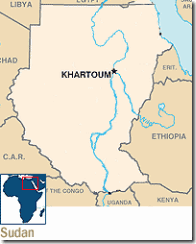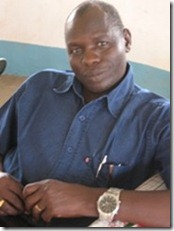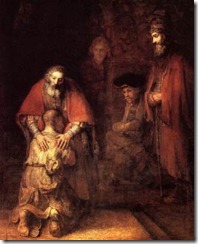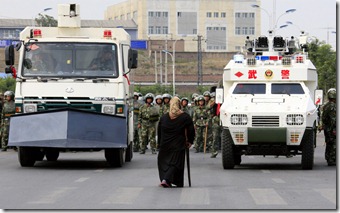Breaking News! CLE and CEU Credit has been approved
for attorneys and licensed professional counselors!
scroll down for conference topics, schedule, and speaker biographies:
Topic highlights are domestic violence, Africa missions, refugee children in USA, Middle East conflict, making peace in families, rule of law, preventing genocide … timely and relevant!!!!!
TO REGISTER
Fill in this form:
FRIDAY TOPICS
8:30 AM Registration and Coffee
9:00 AM Light Amid Darkness: What Did the Twenthieth Century Teach Us For Prevention of Genocide, and Where Does Peacemaking Fit? (Alexandria Skinner)
10:00 Documentary Film of a Truth and Reconciliation Commission in South Sudan, and panel discussion of restorative justice
11:00 AM Children At The Border: What Are The Legal And Practical Issues With Regard To Undocumented Alien Minors On Our Southern Border? (Tammy Besherse, One hour of CLE / SW/ LPC CEU anticipated)
12:00 PM Lunch together
1:00 PM Introduction of the Work of Each Speaker: What We Do and Why We Do It
Leah Boyd: Building Peace Through Rule of Law
Nancy and Shelvis Smith-Mather: Building peace by building communities
Hugh Hammond: Building peace through small group dialogue
Julie Owens: Building peace through training helpers
2:45 PM World Cafe peacemaking exercise for participants
4:00 PM Group Sharing and Recap
4:30 Close for Day
SATURDAY
8:30 Registration and Coffee
12:00 Lunch together
CHOOSE TWO MORNING AND TWO AFTERNOON SMALL GROUP SESSIONS:
Some Spiritual Dimensions of Forgiveness And Reconciliation (Hugh Hammond)
Healing Trauma, Transforming Conflict, And Building Peace In South Sudan: The Work of RECONCILE, International (Shelvis and Nancy Smith-Mather)
The Church and Domestic Violence: Scriptures and Ways to Help (Julie Owens, 1 hr CLE anticipated)
Healing Trauma, Transforming Conflict, And Building Peace In Seven Countries In Africa: The Work Of ALARM (African Leadership And Reconciling Ministries) (Leah Boyd)
Use of Compassionate Communication To Build Bridges of Understanding (Hugh Hammond, 1 HR CLE, LPC CEU anticipated)
Increasing Peace In Africa Through Rule Of Law: Practical Applications of Biblical Principles of Justice (Leah Boyd, 1 HR CLE anticipated)
From Justice to Mercy: Spiritual Aspects of Healing After Trauma (Julie Owens)
Stories of Hope in the Midst of Conflict (Shelvis and Nancy Smith-Mather)
SATURDAY PLENARY
3:25 Living as a Lamb Among Lions: Applying Biblical Principles of Peacemaking As A Christian in an Increasingly Hostile World (Asher Din, Moderator, and Panelists)
4:00 PM Closing Worship
SUNDAY
On Sunday, August 17th, for those who wish to hear more,
Shelvis and Nancy Smith-Mather will be speaking at Forest Lake Presbyterian at 9:00 and 11:00 AM
Leah Boyd will be speaking at McGregor Presbyterian church at 10:00 AM.
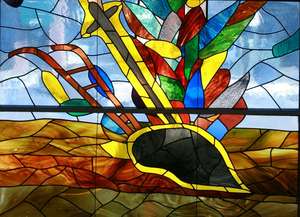
August 15th and 16th, 2014
Spring Valley Presbyterian Church
8:30 AM – 4:30 PM each day, Childcare and lunch provided but we need you to pre-register so we know how many to plan for!
REGISTRATION IS FREE BUT TO OFFSET COSTS WE ARE REQUESTING A DONATION OF $25 PER DAY
SPEAKER BIOGRAPHIES
Shelvis and Nancy Smith-Mather are ordained ministers in the Presbyterian Church (USA) . They work in Yei, South Sudan, with RECONCILE, International, an African-led ministry which engages in peace-building and trauma healing work in South Sudan.
Leah Boyd is an American human rights attorney who works with ALARM (African Leadership and Reconciling Ministries), training African leaders in principles and practices related to Biblical justice. ALARM is an African-led peace-building and trauma healing ministry which works in seven African countries affected by war and genocide.
Julie Owens is a nationally recognized expert and trainer in the subject of domestic violence. In a state which ranks as a leader in the USA in domestic violence, Julie will speak not only about what can be done to counteract domestic violence itself, but the process of trauma healing for victims (a process which will have been described during day 1, in the context of the Africa experience). Julie will help participants learn ways to apply this theoretical understanding of trauma and violence into practical knowledge that can be applied in local ministries and nonprofits, and in their own churches. Domestic violence advocates will not want to miss this workshop!
Hugh Hammond, MDiv., is a former engineer who has a passion for bringing peace and reconciliation to those torn by conflict in the Holy Land, where he has traveled each of the last three years to do peace-building work with Palestinians and Israelis. Hugh is also a candidate for certification as a trainer in Nonviolent Communication, a method for building compassion pioneered by Marshall Rosenberg, who founded the Center for Nonviolent Communication.
Asher Din is a Ph.D. Candidate at Erskine Seminary in Due West, SC, but he is a native of Pakistan. Asher’s family has been Christian for many generations, living in a predominantly Muslim culture and navigating cross cultural dialogue and peacemaking as part of their everyday lives.
Alexandria Skinner, J.D., works as a mediator for families and churches in South Carolina who seek peaceable resolutions to difficult challenges.
This conference is sponsored by the Peacemaking Committee of Trinity Presbytery.
*The art on this page is the “Christ the Peacemaker” stained glass window located at Central Baptist Church in Wayne, Pennsylvania, has been used with permission. The explanation for the art is:
Christ the Peacemaker They shall beat their swords into plowshares and their spears into pruning hooks. Nation shall not lift up sword against nation. Neither shall they learn war any more. Micah 4:3
The window facing Lancaster Avenue represents Central Baptist Church’s ministry of peacemaking and justice-building in the world. The Light of God descends from heaven, coming through the figure of Christ the Peacemaker. The light surrounds Christ’s hand and continues down through the sword to create the plowshare. The bright colors represent the explosive transformation that occurs when peace breaks out in the world.
“To me it is like the phoenix arising from its own ashes symbolizing rejuvenation, continuity, and resurrection. I used clear glass for the main part of Christ’s body as an invitation to the outside world to come in and know the Peacemaker.” Lucinda Shaw, artist
Read Full Post »




